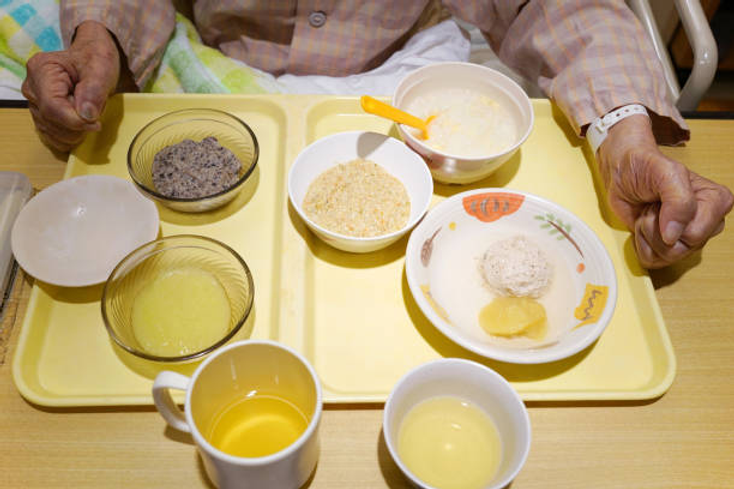Dental health significantly influences how we look, feel, and even interact with others. A healthy smile boosts confidence, while untreated issues can lead to discomfort and affect self-esteem. Globally, around 3.5 billion people experience some form of oral health issue, with millions needing treatment for wisdom teeth complications alone. Studies show wisdom teeth often need removal in people between 17 and 25, typically due to impaction or misalignment, which can create significant issues without intervention.
As Dr. Alisha Khan, founder of Evershine Dental Clinic in Chembur, explains, “Wisdom teeth can be challenging not just for their discomfort, but for the prolonged healing time they sometimes require. Problems with wisdom teeth can affect physical and emotional well-being, limiting our daily productivity and comfort. Thankfully, advancements in dental procedures have made treatment smoother and recovery more manageable.”
This blog covers what to expect 2 weeks after wisdom teeth removal, common reasons for discomfort, and how to manage ongoing symptoms.

What to Expect 2 Weeks After Wisdom Teeth Removal
At 2 weeks post-surgery, you’re likely on the road to recovery, with the ability to gradually resume eating softer foods. Healing is often well underway, but some mild tenderness or sensitivity in the area is natural, along with the occasional feeling of tightness in the jaw. Other symptoms, like slight pain and stiffness, are expected as the tissues continue to heal.
As Dr. Khan, a seasoned orthodontist in Chembur, Mumbai, explains:
“It’s not unusual to experience some residual pain or tenderness even 2 weeks after tooth extraction. These sensations are usually a part of the body’s natural healing process and should lessen with time and care.”
Do you have lingering discomfort or sore throat 2 weeks after wisdom tooth extraction? Consult a knowledgeable dentist to ensure everything is progressing as expected.
Let’s understand what might be causing your discomfort.
Common Causes of Discomfort 2 Weeks Post-Removal
Residual Swelling: As the tissues continue to repair, swelling can persist for up to 2 weeks, particularly if the wisdom tooth was deeply impacted.
Jaw Stiffness: The jaw can feel tight or stiff due to muscle strain from the prolonged mouth opening during extraction.
Sensitive Gums: Healing gums are often sore, especially when eating harder foods or brushing.
Bad Taste in Mouth: Small food particles or slight infection in the area can cause an unpleasant or bad taste in mouth 2 weeks after tooth extraction.

Minor Pain: Residual pain is common, especially if healing is slower than expected.
Mild Sore Throat: With lower wisdom teeth extractions, the surrounding tissue can cause a mild sore throat.
Jaw Pain: Muscle strain from keeping the mouth open during extraction can result in jaw pain 2 weeks after wisdom tooth extraction, especially if the extraction was complex.
According to Dr. Khan, an accomplished dentist in Chembur:
“Post-surgery discomforts are typically manageable and should decrease as the healing progresses. However, persistent pain or symptoms may indicate a complication that needs professional attention.”
Let’s explore the best ways to relieve prolonged residual pain 2 weeks after wisdom teeth removal.
How to Manage Pain and Swelling 2 Weeks After Surgery

Cold and Warm Compresses: Start with cold compresses to reduce swelling, then switch to warm compresses to relax tense muscles.
Oral Hygiene: Maintain good oral hygiene by keeping the extraction site clean by rinsing with warm salt water to avoid infections and reduce discomfort.
OTC Pain Relievers: Over-the-counter medications like ibuprofen or acetaminophen can help manage mild pain and reduce inflammation.
Gentle Massages: Light jaw massages can ease stiffness, improving comfort around the area

Limit Chewy Foods: Stick to soft foods to avoid irritating the area and allow the tissues to heal fully.
Stay Hydrated: Drinking plenty of water aids overall healing by flushing out toxins and maintaining a healthy environment around the extraction site.
Are you concerned by the lingering symptoms post-extraction? Speak to a professional dentist for expert advice on your recovery.
Is it time to see your dentist? Here’s what to watch for.
Signs You Should Consult Your Dentist Post-Extraction
Symptoms that may indicate the need for professional evaluation include:
- Fever
- Intense swelling
- Pus formation
- Increased jaw pain
- Persistent bad breath
- Trouble swallowing
- Difficulty opening the mouth
Dr. Khan, a distinguished dentist in Chembur, emphasizes:
“If discomfort intensifies rather than improving, visit a dentist for the appropriate dental treatment, as it could signal an infection or another complication. Ignoring prolonged discomfort may lead to further complications, affecting overall dental health and delaying recovery.”

Conclusion
A bright smile can enhance confidence, but complications with oral conditions like wisdom teeth can disrupt it. For many, wisdom teeth extraction is required to prevent long-term problems, and the healing process varies. Slight discomfort 2 weeks after tooth removal does not need to cause alarm as long as symptoms gradually ease with proper care and attention.
As you’ve learned here, knowing the causes of discomfort and care techniques can be helpful during recovery. Don’t hesitate to reach out to a caring dental expert to ensure your healing is on the right track and address any potential issues.
FAQs
Can I eat normally 2 weeks after wisdom teeth removal?
Yes, most people can gradually return to a regular diet 2 weeks after extraction. However, it’s wise to avoid extremely hard or sticky foods to prevent irritation.
How should you feel 2 weeks after wisdom teeth removal?
Can wisdom teeth get infected after 2 weeks?
Is it normal to have trouble opening my mouth 2 weeks after wisdom teeth removal?
Can I exercise 2 weeks after wisdom teeth removal?
Disclaimer: The information shared in this content is for educational purposes only and not for promotional use.
